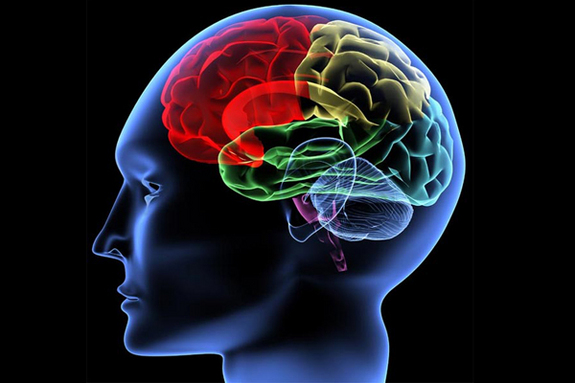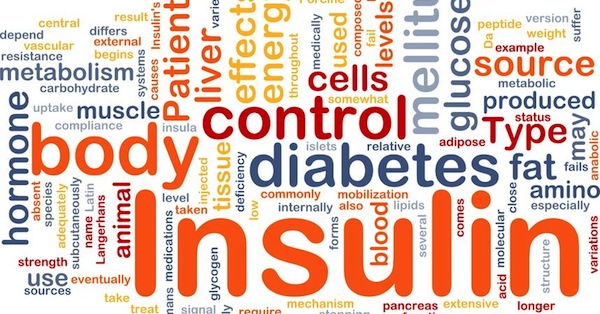1. A Low Carb Diet Lets You Eat as Much as You Want (Forget Calories)
Calories might matter when it comes to losing “weight” but not when it comes to losing strictly fat. This is because without carbohydrates we keep insulin down and prevent fat storage. But more importantly, we promote fat burning. Since low insulin means high glucagon – the hormone that grabs fat from storage to burn as fuel.
For example, a 2003 randomized controlled trial from the Journal of Pediatrics took overweight adolescent boys and put them on a low fat or low carb eating plan for 12 weeks. The low carbohydrate group not only lost TWICE as much weight (19lbs vs. 8.5lbs) but they averaged 700 MORE calories per day.

2. A Low Carb Diet Reduces Hunger & Cravings
Less insulin also means less hunger, because drops in blood sugar (after an insulin spike) initiate a burning desire to eat. The other thing that escalates this hunger is a lack of satiating (fullness promoting) animal protein and fat; which is common on a standard caloric deficit diet. Unfortunately, when this deficit is chronic, we also see a significant reductions in the satiety hormone leptin. Making us less satisfied from meals in an effort to access more calories, and elevating ghrelin – the hunger hormone.
A 2011 study in the New England Journal of Medicine determined that after a 10-week period of restricting calories, hunger and fat storage hormones increased significantly, while leptin (the hormone that prevents fat storage) remained low for a WHOLE YEAR after the restricted time period.
Similarly, a low carbohydrate plan knocks out cravings. Largely because of the removal of the morphine-like components in addictive foods (wheat, sugar), but also because once you make the transition to burning fat as fuel (via a ketogenic diet), there’s no such thing as dangerously low blood sugar.

3. A Low Carb Diet Preserves Muscle Mass & Metabolic Rate
One of the reasons low-carb eating burns mostly fat, is because the ketones produced from fat (as an energy source) preserve muscle. Further, unlike a low-fat plan, or conventional diet, there’s no restriction on calorically dense animal protein. Meaning muscle is more than fed with the essential amino acids (and high protein intake) it needs to thrive.
For instance, a 2002 study from the journal Metabolism, took a group of normal-weight men and lowered their carbohydrate intake to 8% of calories for six weeks (a ketogenic diet), while instructing them to eat as much as they wanted outside of that restriction. Not only did the participants lose over 7lbs of fat, but they actually increased their muscle mass by over 2lbs.
Along the same lines, this muscle mass (and adequate calorie count) makes sure we maintain our metabolic rate. In contrast to a chronic caloric deficit where muscle is sacrificed and metabolism is slowed as the body struggles to survive on less calories. Can you say skinny fat?
4. A Low Carb Diet Improves Brain Performance
Conventional advice will tell you our brain needs 120g of glucose to survive, even though your brain can access fuel regardless of what you decide to put in your mouth that day. And as the millions of people that have now done a ketogenic diet, or intermittent fasting can attest to, the carb-less brain functions better!
Realistically, the brain prefers ketones (like beta-hydroxybutyrate), and functions better on them in most people because they provide fuel regardless of glucose sensitivity. Plus, they prevent free radical damage by reducing amyloid, increasing antioxidants (glutathione), and stimulating mitochondrial growth. So, anyone experiencing cognitive decline, or that wants to prevent cognitive decline, can benefit tremendously.
“In Alzheimer’s disease (AD), there appears to be a pathological decrease in the brain’s ability to use glucose. Neurobiological evidence suggests that ketone bodies are an effective alternative energy substrate for the brain.” – Neurobiology of Aging, 2004.

5. A Low Carb Diet Lowers Inflammation
Chronic inflammation is one of the driving forces behind chronic disease, and fortunately the foods promoting this inflammation (like wheat) are eliminated on a low carb (or ketogenic) plan. Meaning the body won’t attack it’s own tissue, disrupt normal functioning, and increase the heart disease, diabetes, dementia, and auto-immunity that occurs as a result.
“Other than gluten, many of the gliadin proteins in wheat are responsible for inducing a pro-inflammatory immune response, whether the individual has a known intolerance or not.” Eat Meat And Stop Jogging, 2014
Diets that make no mention of food quality may help you lose weight and reduce certain biomarkers, but they fail to address the underlying cause of disease – inflammation. Also known as, 1 more reason a calorie isn’t a calorie.
6. A Low Carb Diet Improves Insulin Sensitivity
Your sensitivity to the hormone insulin is going to determine for the most part whether you’re someone that stores sugar as fat or muscle. And similarly, whether your blood sugar stays elevated (insulin resistant), or is quickly lowered as your cells gobble up the energy.
A reduced carbohydrate plan improves this sensitivity because insulin stays dormant, and your cells gain receptor sites. In contrast to a strategy where insulin is chronically active (i.e. low-fat, high-carb food pyramid), sensitivity doesn’t improve, and the weight lost is predominantly muscle.
But more importantly, these improvements in sensitivity lower disease risk because sensitive cells mean a low or steady blood sugar; which equates to less binding with proteins (to form AGES and promote plaque build-up), less glucose pushed to the liver (to form triglycerides and bodyfat), and a well-rested, fully functional pancreas.
A study from 2005 in the Annals of Internal Medicine put diabetic patients on a low-carbohydrate, ketogenic diet for 2 weeks that helped them improve their insulin sensitivity by 75%!

7. A Low Carb Diet Reduces Critical Biomarkers for Heart Disease, Diabetes, and Dementia
The less glucose you eat, the more your body burns fat as fuel. And as we’ve discussed on numerous occasions, less fat equals less disease. Whether we’re talking heart disease and diabetes or Alzheimer’s and cancer.
That being said, the disease reduction attributed to a low carb diet extends well beyond that. Because as we just talked about in points #5 and #6, inflammation is pretty well eliminated (from a dietary perspective) and insulin sensitivity skyrockets. Reducing blood sugar, AGEs, triglycerides, and C-reactive protein – all critical risk factors for heart disease, diabetes, and dementia; and all critical factors that can be reduced by cutting calories and losing weight, but never to the extent we see with carbohydrate reduction. Especially when we look at what’s maintained with it (muscle, metabolic rate, leptin) and what can be improved simultaneously for those choosing the right fats (high HDL cholesterol, positive LDL cholesterol transformation, brain function).
8. A Low Carb Diet Supports Hormones
A major problem with the low-fat, low-cholesterol advice of the last 50 years that’s often forgotten, is what it’s done (and is doing) to people’s hormones. Sure, the cholesterol we eat has a minimal impact on the cholesterol in our blood, but the saturated fat we’re told to avoid and the statins we’re forced to consider, are reducing our precursor for steroid hormones.
Today’s average Testosterone is 22% less than 20 years ago!
The issue with low-calorie diets is similar, in that the end result is embarrassingly low sex hormone levels, but we also see disrupted fertility. Since one of the first systems sacrificed in an energy deficit is the reproductive system. Sadly, we also see the hypersecretion of stress hormones (like cortisol), which only further inhibits testosterone and other muscle building hormones, and often times disrupts thyroid function.

A low-carb plan? None of the above. As plenty of saturated fat delivered via animal based foods fuels the production and transport of steroid hormones, with none of the damage inherent with too little fat and too little calories.
9. A Low Carb Diet Prevents Deficiencies
Nutrient deficiency is at the root of many weight loss and disease struggles, and as we’ve discussed on this blog and in Live it NOT Diet! the best way to prevent them is by eating plenty of calorically-dense animal foods. Especially the innards!
Low-cal, low-fat, and no-meat diets eventually lead to failing health because they taper down or cut out the one food that’s essential. Resulting in the most common nutritional deficiencies – B12, iron, DHA, vitamin A – that aren’t seen when you reduce carbs and make meat mandatory.
“The lower limit of dietary carbohydrate compatible with life apparently is zero, provided that adequate amounts of protein and fat are consumed.” IOM (2002)
10. A Low Carb Diet Reduces The Need To Exercise
The benefits of exercise can’t be ignored (1, 2), but they can be inflated. And unfortunately, this is characteristic of the advice from the majority, that says your fatness and ill-health is the result of laziness and a lack of discipline – eating too much or not exercising enough.
But, here’s the thing: when you eat less CARBage you actually don’t have to move much. Because there’s no glycogen to use up, or glucose to make room form, and you’re using fat as your fuel source – so you’re burning it all day without going to the gym.

Now don’t get me wrong, I’ll be the last guy to tell you not to walk more and lift weights. However, if your life is seriously sedentary, and it’s not going to change, Low-Carb is the best chance you have at thriving and surviving.
Stay Lean!
Coach Mike
RELATED ARTICLES:
You Are NOT a Kitavan Islander
Low-Fat vs Low Carb - What's to Debate?
From Chronic Inflammation to Chronic Disease
